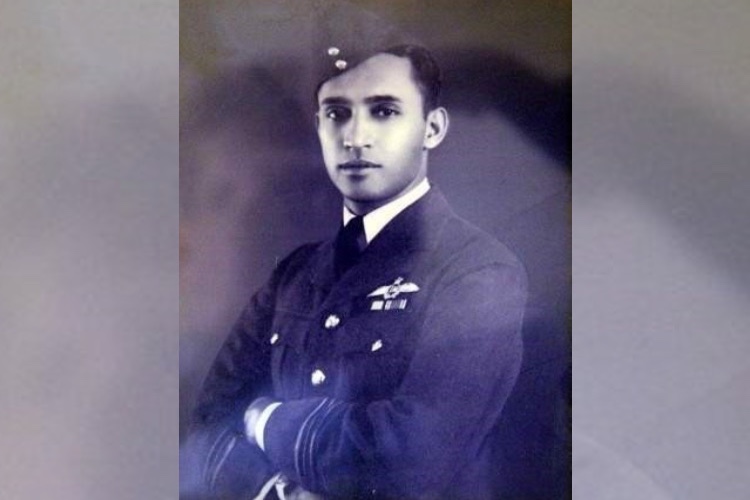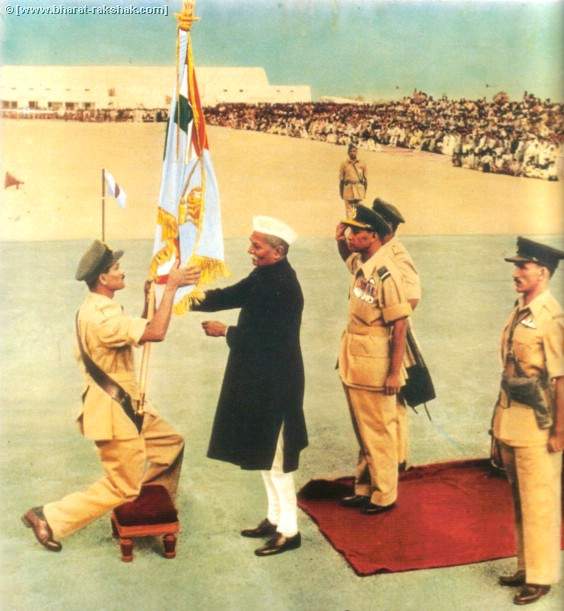
Saquib Salim
“Planned and executed by Air Vice Marshal S. Mukerjee, popularly known as 'Sobroto’, …. our aircraft helped the ground forces in many ways, thus bringing the action in Hyderabad to a speedy end….. Already he holds several firsts in the Royal Indian Air Force to which he has added ‘HYDERABAD'.” These words are part of press note issued by the Government of India after the successful conclusion of Operation Polo against the militia of Nizam of Hyderabad in 1948.
INDIAN AIR FORCE DAY
The report correctly points out Subroto Mukerjee as a man of many firsts. Especially in the context of the Indian Air Force he was. The Royal Indian Air Force was established with a circular published on 8 October 1932, in the Gazette of India. On April 1, 1933, the No.1 Squadron of IAF was formed at Karachi with six officers. In the years to come, he played an instrumental role in the development of the Indian Air Force while combating overall neglect by the British Government, which would not develop it instead of the Royal Air Force based in London.
In the run-up to the transfer of power, on 15 May 1947, Subroto became “the first Indian officer to be promoted to the rank of Air Commodore”. The official order noted, “he was the first Indian officer to be commissioned in the Indian Air Force in August 1932, and also the first Indian Squadron Commander and station Commander in the IAF”.
On 15 August 1947, Subroto was promoted to ‘Senior Air Staff Officer’, the highest Indian Officer in IAF then. The task assigned to him was not easy. India was a newly Independent nation and the partition dealt a severe blow to the IAF. Ishita Sharma in her The History of Indian Air Force notes, “Independence and partition, was a sad blow to the IAF with it being decided that No.1 Squadron assets would be transferred to PAF (Pakistan Air Force), leading the No. 1 Squadron to be number-plated for the time being.” If this was not enough a test, the IAF under Subroto faced a test rarely faced by Air Forces.

Subroto Mukerjee saluting the colours as President Dr Rajendra Prasad hands them over to an officer
Kashmir was invaded by Pakistan. The road link was under attack and airdropping was the only hope for the Indian people. The airstrip was constructed at Poonch and the first Aircraft landed on 8 December 1948. Subroto, like a true leader, landed at Poonch with Air Commodore Mehar Singh. IAF in the next few weeks turned the tables. At an unprecedented height, thousands of people were rescued, and army reinforcements and food were airdropped as India decisively turned back the invaders.
On 1 April 1954, Subroto took over the command of the IAF as its first Indian Commander in Chief from G. E Gibbs. A government communication noted, “In November 1947, he was appointed Deputy Chief of Air Staff, and was the first Indian to hold this post. Seven years later he assumed the high office of the Chief of Air Staff and again was the first Indian to do so. In 1955, in addition, he became Chairman, of the Chiefs of Staff Committee.” In 1958, he got a Second term as Chief of the Air Staff. He passed away on 8 November 1960 in Tokyo.
On 11 November, as his pyre was lit 49 jet aircraft, a number denoting the age of Air Marshal Mukerjee flew over Nigambodh Ghat in Delhi and dipped in salute to pay a flying homage to their departed leader.
ALSO READ: Mohammad Manik saves 9 lives during Jalpaiguri Durga immersion
Air Marshal A. M Engineer, who took charge as Chief of Air Staff after Subroto’s untimely death said, "It is under very tragic circumstances that I am called upon to take over the duties of Chief of the Air Staff. As you know, our late Chief, Air Marshal Mukerjee, joined the Service when it was formed and as such was associated with the growth of the IAF from its birth. With his unflinching devotion to the Indian Air Force and his hard work and able guidance, he ensured its emergence as the powerful force that it is today. Therefore, let us for all time remember him as the Father of the Indian Air Force and cherish his memory as such.”
Saquib Salim is a historian-writer
